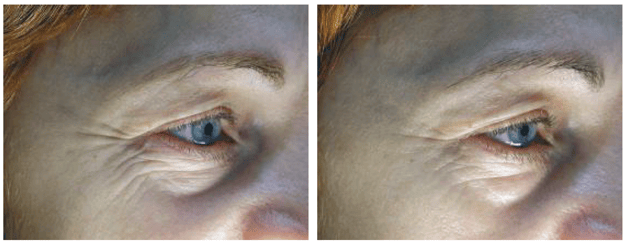
We've heard a lot of excuses for why some people STILL don't use retinol (if you're one of them, we're committed to making you a devoted retinol enthusiast by the end of this article). Retinol is one of those incredible ingredients that does everything it can to help everyone of any age and skin tone, without much appreciation. So if you've found yourself making excuses for why you can't use it, you might be holding on to some old myths, half-truths, and even some flat out false info. Below are the most common myths about retinol, debunked.
If it causes irritation, you should stop using it.
This is the most common thing that happens when you start using a new retinol, especially if you're increasing the amount of active ingredients. This doesn't mean you should stop—in fact, it usually means the opposite. Retinol can cause some irritation like redness or flaking when your skin isn't used to it, and it might take a couple weeks to adjust. This doesn't indicate an allergic reaction or a product that's unsuitable for your skin. It's simply the vitamin A doing its thing. It's ok to dial back your usage to once every few nights while the irritated skin improves, but we encourage you to continue using it because your skin will eventually calm down.
If you want to reduce your chances of retinization (that's the name of the reaction you're having), try layering your retinol over a gentle moisturizer, try to avoid using it every single night, and use a rich moisturizer for extra dry patches. If you're in actual pain and suspect a problem, call us.
Once your skin adapts, the retinol is no longer effective.
It's true that your skin can develop a tolerance for retinol, but there's good news. You're never going to develop so much of a tolerance that it can no longer provide you with benefits. In fact, you can get plenty of benefit for over a year with the same amount. And there are other ways to create resistance when your skin starts to tolerate it more and more, such as increasing to the next percentage or extending retinol use to every single night. Eventually, you'll find a level that provides long-term benefit to your skin so keep increasing your dose until you find the perfect level for you.
You can't use retinol around your eyes.
Um, our Advanced Retinol Eye Cream is sort of insulted by this unfair bad rap. Retinol can absolutely be used around the eyes, especially because that's where it's usually needed the most (and can benefit the most). You can help reduce the appearance of dark circles, puffiness, and lines around the eyes with a great retinol. Retinol increases collagen production, which helps fortify the thin and sensitive skin around your eyes, making them look brighter. And if you get it in your eye, it might sting a little bit but it's not terribly harmful. If you're still not convinced, stick to something like the Advanced Retinol Eye Cream that's specially formulated for the skin around your eyes, and stick to retinol face creams for the rest of your face's skin.
|
Advanced Retinol Eye Cream Before & After: 
|
Gentle, lower-dose retinoids are just as effective as stronger ones.
If a restaurant watered down your glass of wine, we're pretty sure you'd notice it wasn't as strong as it's intended to be. And while we understand that skincare isn't exactly the same thing, it's still the same premise. Using a retinol that's labeled as gentle or appropriate for sensitive skin is derm-speak for a lower percentage of the active ingredient. So no, it isn't going to be as effective as a stronger retinol but that's not to say it's not a great product. Some people have sensitive skin, and a gentle retinol is the only way they can partake of this ingredient without any problems. But generally speaking, even the most sensitive skin types can eventually graduate to a stronger retinol with time and your skin will still see some benefit from lighter formulas.
Retinol makes your skin more sensitive to sunlight.
We recommend using retinol at night, but this isn't why. This myth can be dangerous because people might think that simply applying a thick layer of sunscreen will make wearing retinol during the day alright. But the reason we recommend it at night is because of how ineffective you're rendering your retinol by exposing it to UV light. It's sort of like applying a moisturizer and then immediately stripping it off with an exfoliant. Retinol's ability to turnover cells quickly and boost cell renewal is at its most powerful during the night when your skin is already naturally doing this. And wearing retinol in the sun under your makeup and sunscreen means your skin could get irritated and congested from the heat. A lot of people mistakenly believe that retinol thins your skin because of its exfoliating properties, however, the opposite is true. Retinol is actually building collagen and thickening your skin, so the myth that retinol will thin your skin and lead to a sunburn is false. Retinol won't necessarily cause a sunburn, but the sun can definitely accelerate irritation, so just stick to wearing it at night when retinol is most capable of delivering the best results.
Curious about our retinols and other skincare products? Contact us at info@supriyamd.com or call our office at 561-805-9399 to book a skincare consultation and facial with us.

-png-1.png?width=250&name=Untitled%20design%20(48)-png-1.png)
-1.png?width=250&name=Untitled%20design%20(47)-1.png)